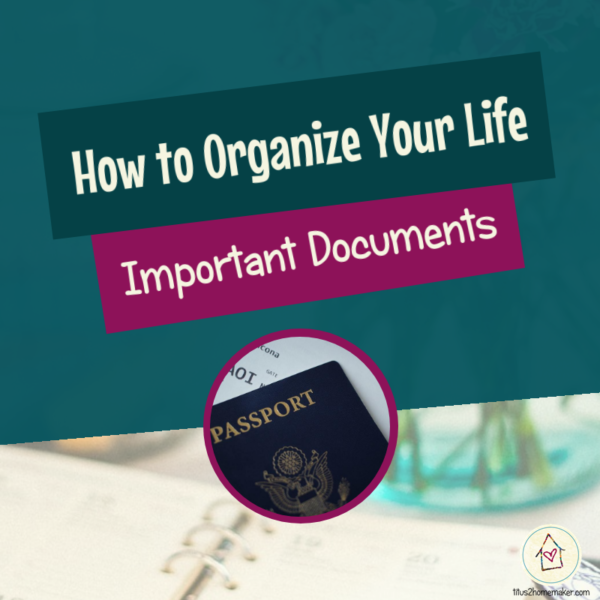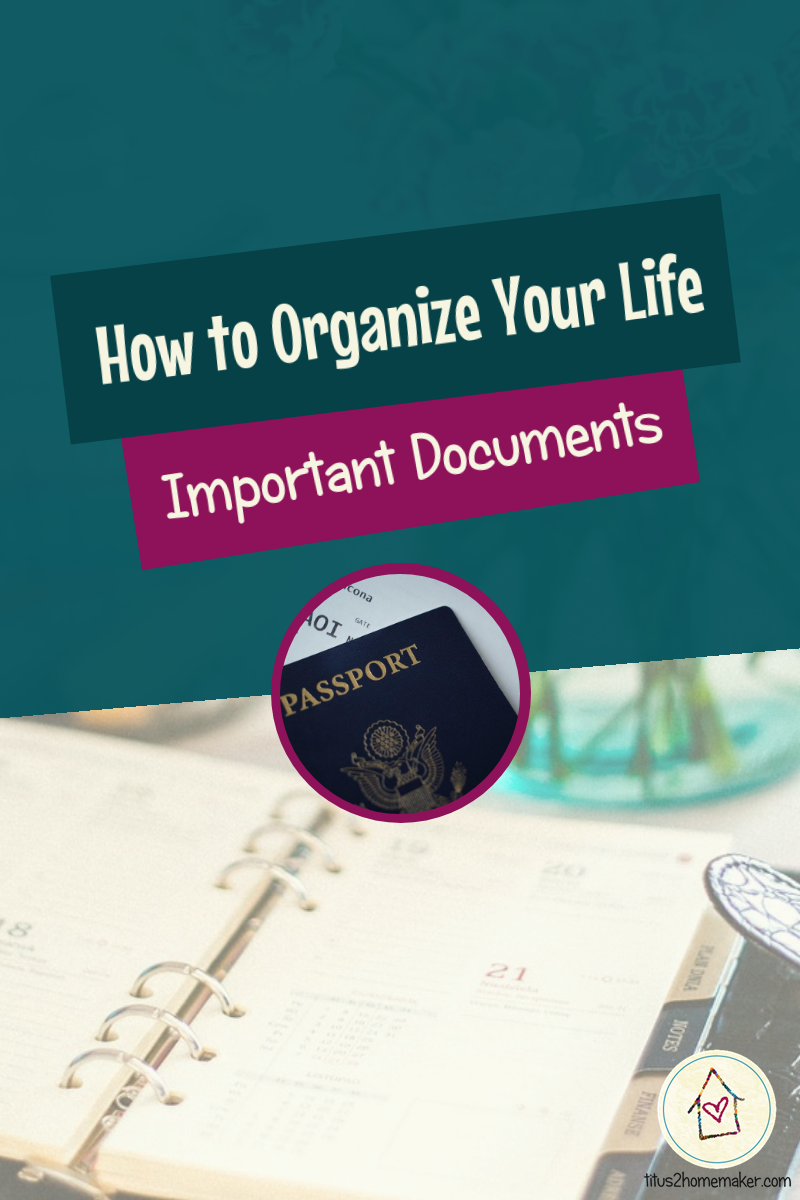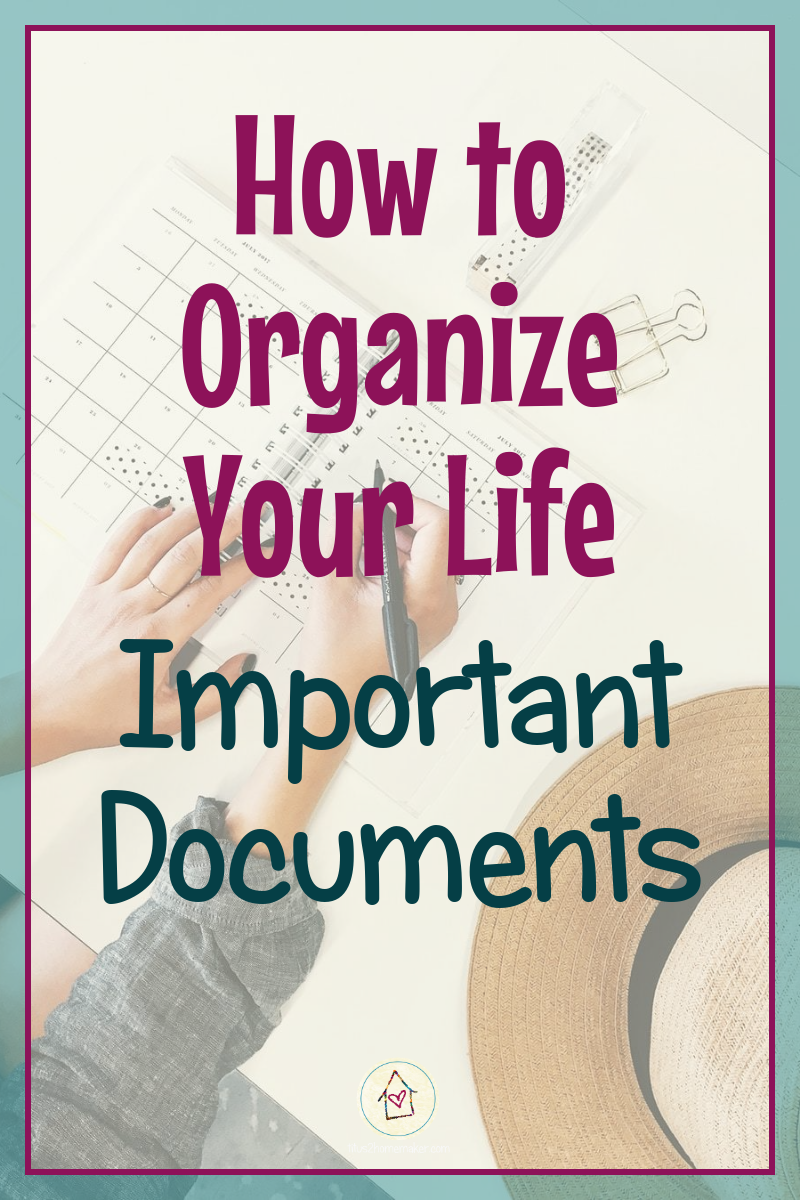Updated Sep. 22, 2019. Originally published Mar. 19, 2013.

If you’re just stumbling across this, please click here for the other posts in the series.
What Documents?
The documents we’re going to talk about today are documents that, hopefully, you already have. You will simply need to check to ensure that you have a place for them — a system for organizing them so you can retrieve them when you need them. These are documents like:
- birth certificates
- marriage certificates
- death certificates
- deeds & titles
- passports (if you need them)
- social security cards
In other words, important legal documents. Theoretically, these should be kept off-site, in a safety deposit box, but my family doesn’t find this very practical. Not only does that mean these documents aren’t readily accessible when we need them, it’s not financially feasible for us. So we have opted for the second-best option: a fireproof lock box.
(Although copies are not the same thing, you might want to consider having either copies or a CD with scans that you store somewhere else in case of disaster. Perhaps you could swap with a trusted friend or relative. This way, at least you would be able to reconstruct which documents you need, if something happened to them. We’ll talk about this more in a later installment, when we get to Emergency Information.)
STEP 1: If you don’t already have a fireproof box, safety deposit box, or similar solution, GET ONE. (If you can’t do it immediately, at least add it to your to-do list/shopping list right away.)
STEP 2: Move all of your important documents to this location.
STEP 3: Make note of anything that’s missing.
If you are missing birth certificates, can’t find social security cards, etc., do what you need to do to get certified copies of these documents. For a social security card, it will probably require a trip to the local social security office. (Be sure to check the list of acceptable identification before you go.) For birth certificates, you usually have to send in a form, with the appropriate identification and a fee, to your state’s department of vital records.
If you will be needing a passport in the near future and don’t have one, make plans to get that taken care of. (The processing can take a while, so be sure to allow enough time!)
If you are missing something else, add it to your to-do list to look into correcting the situation.
If you’re just stumbling across this, please click here for the other posts in the series.


[…] Organized 11: Food Prep Getting Organized 12: Family Info Getting Organized 13: Health Records Getting Organized 14: Important Documents Getting Organized 15: Home Inventory Getting Organized 16: Warranties Getting Organized 17: Places […]